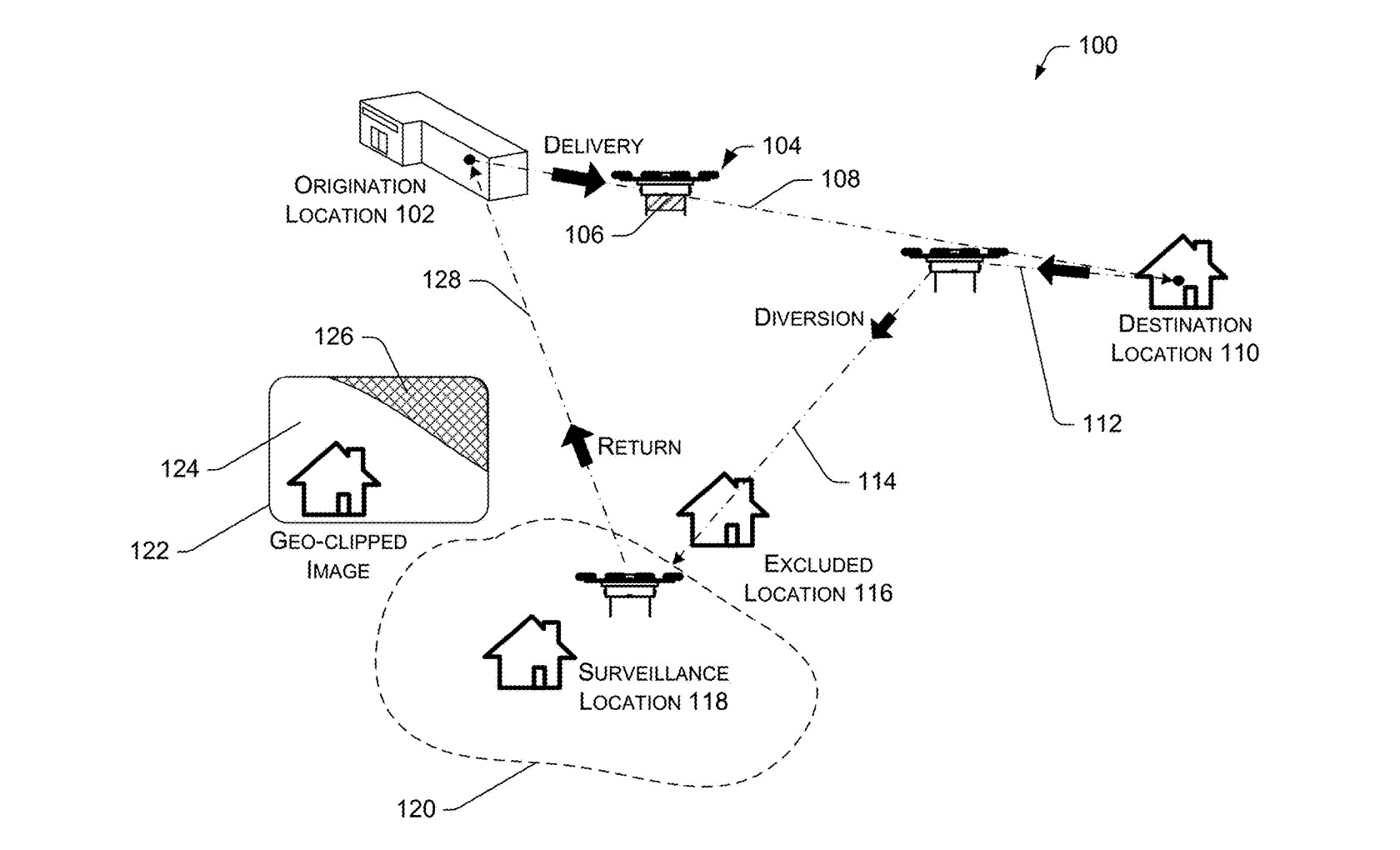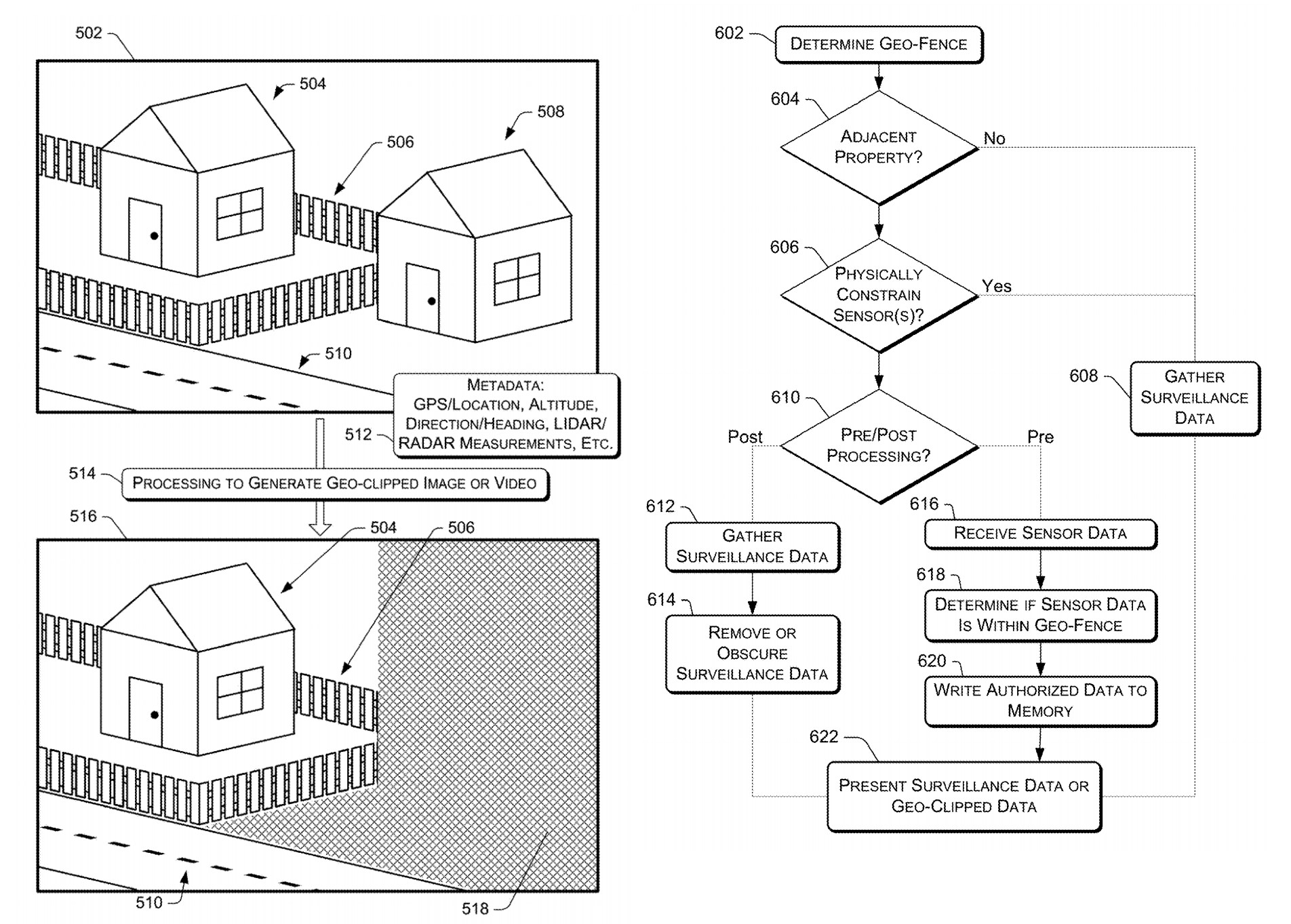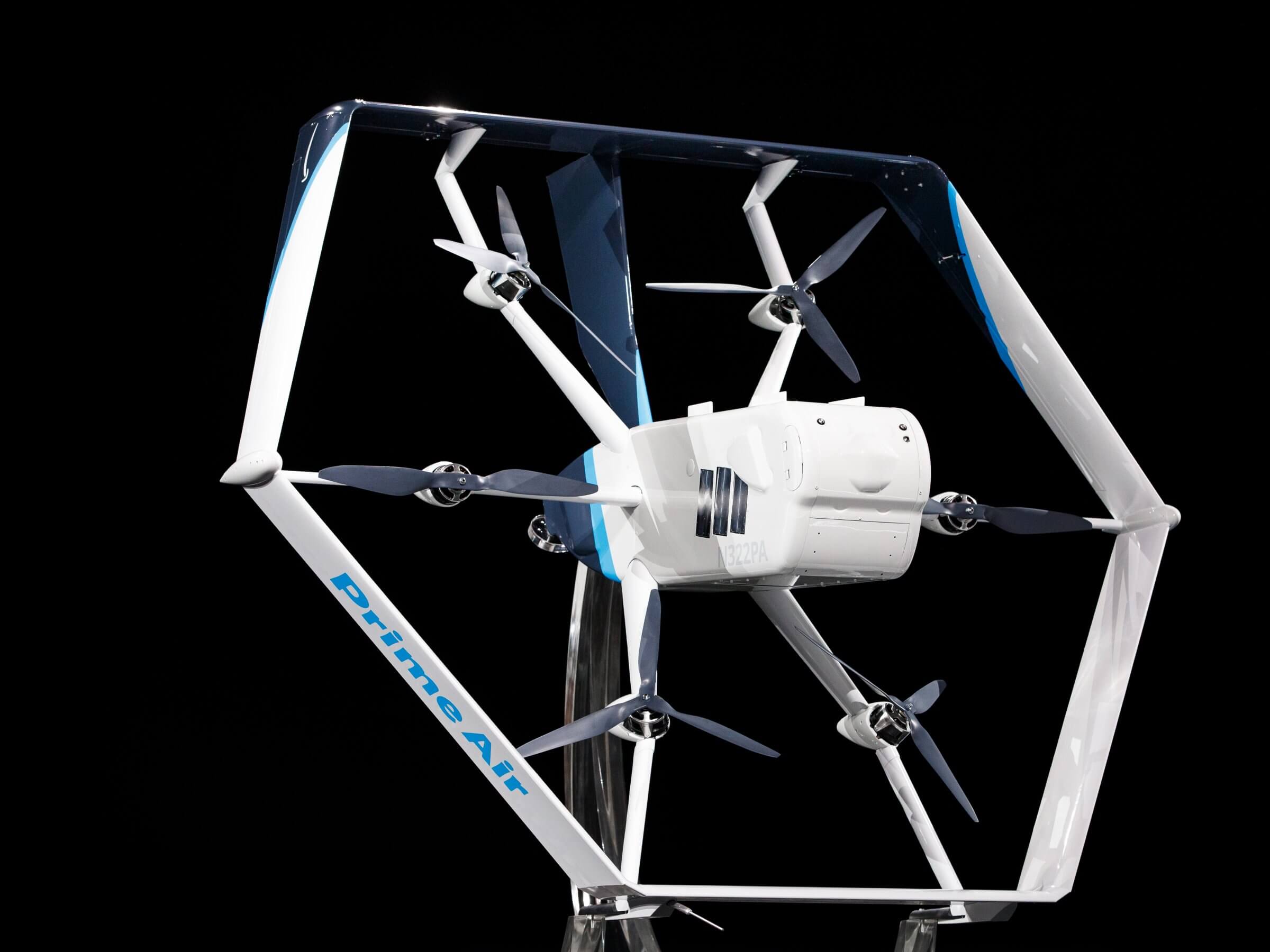In context: One day you notice your neighbor brought one of Amazon's Ring doorbells, and the camera points across the street to your home. The next day, a colleague purchases an Echo for the office. You know that Ring and Amazon employees watch and listen in sometimes when they shouldn't, but your porch and office are hardly private anyway. Shortly after, a family member signs up for Amazon Key, which lets Amazon employees walk through your front door to deliver packages. While it's not a large privacy invasion, you're beginning to wonder where you draw the line...
In the near future, Amazon could announce their recently patented "surveillance as a service" program that employs delivery drones to photograph houses as they fly by, checking for break-ins and thefts. Then your neighbor might sign up for it, and suddenly, every time a drone flies overhead, you're acutely aware that you might be on camera.
In a patent filed June 12, 2015, and approved June 4 this year, Amazon describes the next expansion of their growing smart security network, one that's cheap and flexible - perfect for the mass market. Using cameras and potentially the odd tacked-on sensor, Amazon's upcoming delivery drones will be available for hire, letting anyone pay a small fee for routine home security checks, be they hourly, daily, weekly or as needed. The images will be analyzed for abnormalities by an AI, before being sent to the property owner. In terms of security the deal sounds pretty good, but from the perspective of neighbors' privacy, not so much.

In their patent, Amazon says they can prevent privacy breaches through a combination of pre-image processing, post-processing, and by adjusting camera angles.
It works roughly like this: the delivery drone makes its delivery, pops over to the nearby house, and positions itself so that the targeted house is directly in view. Using geofencing data, a combination of coordinates, property lines and satellite imagery, it automatically obscures the parts of the image it thinks would contain a neighbor's house. It then takes the photo and crops out anything it wasn't meant to capture, before sending the image to the cloud to be analyzed.
Unfortunately, Amazon is known to be pretty bad at all that stuff. Their 'Rekognition' AI that determined 28 members of Congress as criminals comes to mind, as do claims of racial bias. As mentioned above, there were also incidents of Ring and Amazon employees sharing funny clips they lifted straight from people's homes without their knowledge. What's to say Amazon's drone operators wouldn't do the same?

Amazon claims that drone-based security is harder to quietly disable, avoid or manipulate compared to traditional cameras, yet if they're cropping things as aggressively as they need to, then the drone would have to be exceptionally lucky to spot someone in the act or glean useful information. Unless, of course, the drone operator uses the uncropped navigational camera feed to spot criminal activity, which opens further questions about operators snooping around. We're in untested waters here, and though Amazon might find a path through, the start will be choppy.
According to Amazon's consumer chief Jeff Wilke, we're still a few months out from drone deliveries. That would give Amazon enough time to poke the privacy advocates and see how loud they yell, before adding the requisite cameras to their recently revealed hybrid drone. Given the patent was only recently approved, however, it's likely to be at least a year before any surveillance services become available if they do at all. Amazon has abandoned many patents before, including, tragically, massive drone motherships.
